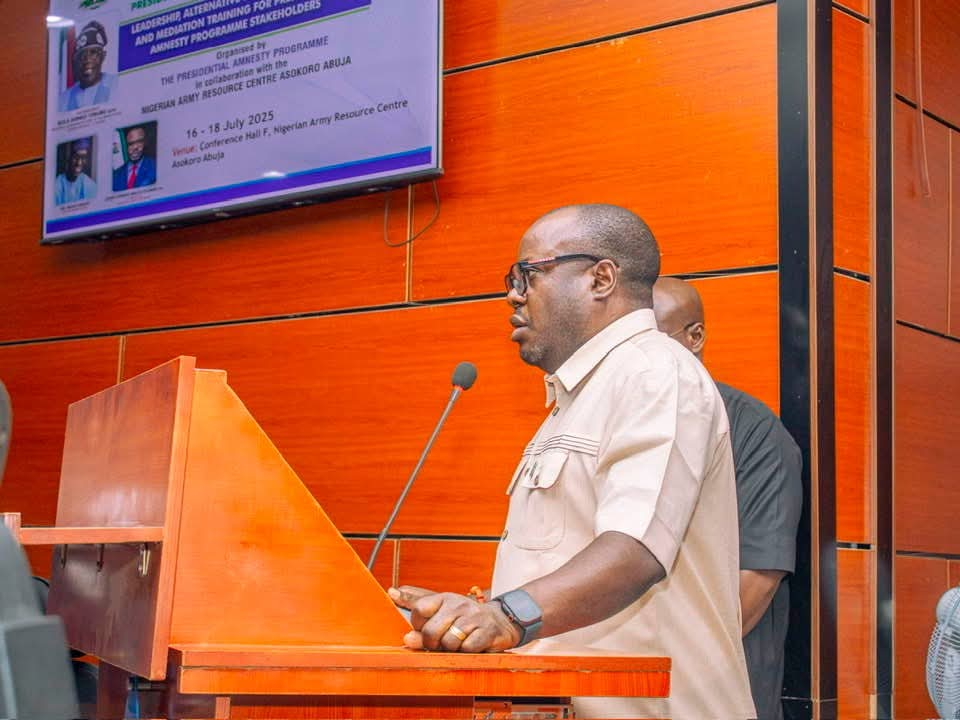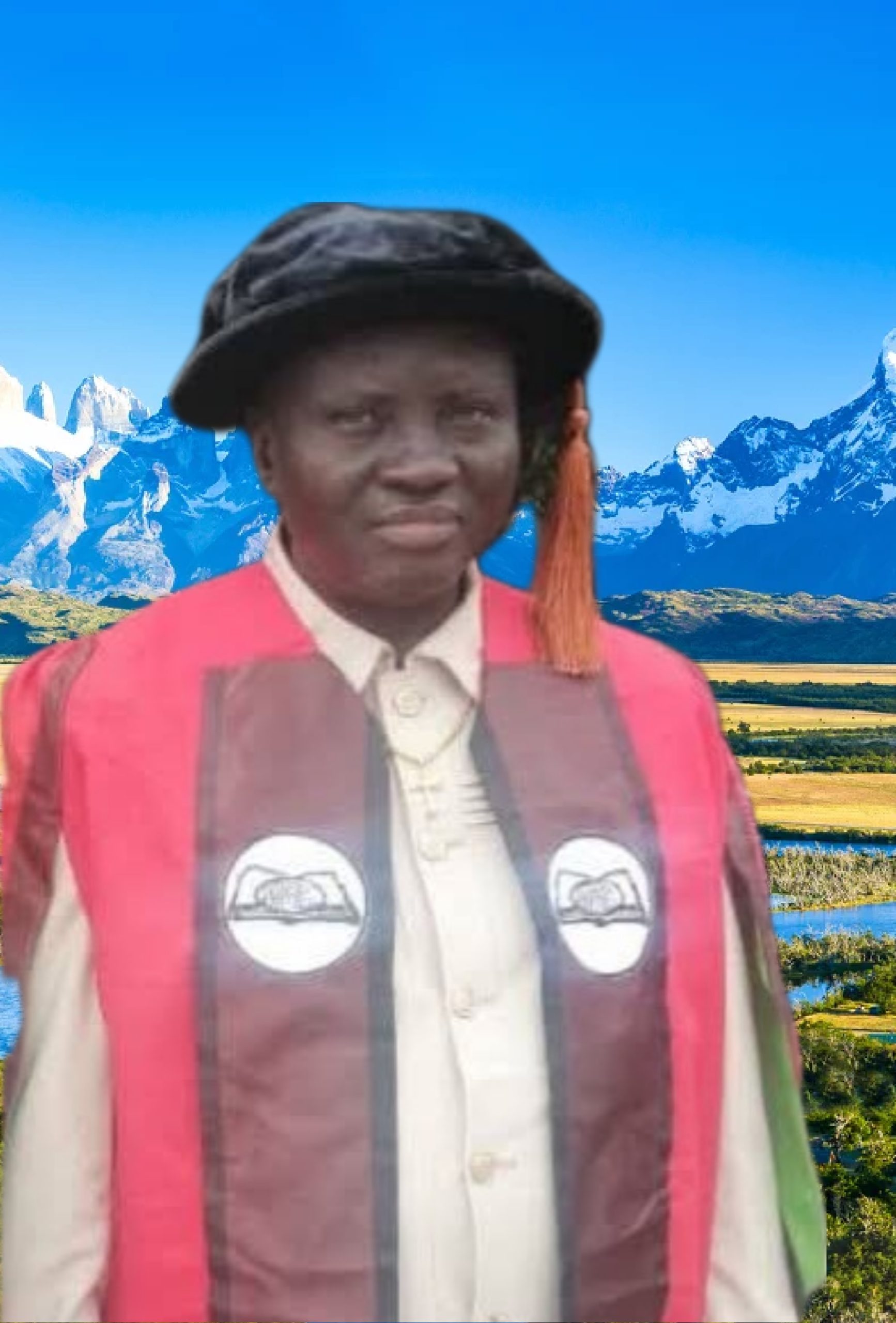Columns
ABADEZONGO ASCENDS, UNLEASHING THE DIVINE AND MUNDANE ENERGIES OF ODIMODI.
IduwiniVoice – Column

As the Odifa progenies of Otolor-Kokioko prepare to unfurl the ancient festival flag of honour, a celestial alignment converges, stirring the ancestral spirits. The legendary Abadezongo Festival awakens the land and waters of Odimodi, heralding a time of extraordinary energy and connection.
Tomorrow, the mystical energies of Iduwini will be unleashed, as the gods of the river and the forest, summoned by ancestral decree, converge to bless Eluwe Ada, the hallowed and ancesteal conference ground of Odimodi where the festivities will unfold.
With the first light of dawn, the drums of Abadezongo will thunder through the forests and rivers of Iduwini, their rhythmic pulse echoing through the very fabric of the land. The drums call upon the people to gather at the sacred shores, where the air will vibrate with the echoes of the ancestors. From the swirling mists, the masquerades will emerge, their colourful plumage shimmering with a spiritual luminescence, their movements a mesmerizing dance of tradition and spirit.
As the festival ignites, the waters of Odimodi will churn and foam, displaying the power and joy of the mythical creatures of the deep who rise from their watery abodes to join the celebration. The people will dance and sing, their voices carried aloft on the wind, their melodies a symphony of joy and gratitude, invoking the blessings of the gods and the protective presence of the ancestors.
Odimodi will be transformed into a realm of spiritual and artistic wonder, where the Abadezongo Festival weaves its magical enchantment. Be there to witness this spectacle, to immerse yourself in the divine energies unleashed, and to become a part of this profound celebration of life, heritage, and the eternal connection between the human and the divine.
By Prof. Benedict Binebai
Niger Delta University.
Columns
Chief Denis Otuaro, the Guiding Star of PAP

By: Professor Binebai
The Niger Delta has found a beacon of hope in Chief Dr. Dennis Otuaro, a leader of unimpeachable integrity, courage, and vision. As the helm of the Presidential Amnesty Programme (PAP), he has emerged as a champion of transformation, inspiring a region and a nation with his unwavering commitment to empowerment and progress.
In the realm of Nigerian leadership, there are those who leave an indelible mark on the sands of time, and Chief Dr. Dennis Otuaro is one such luminary. As the helm of the Presidential Amnesty Programme (PAP), he has etched a narrative of hope, redemption, and triumph, illuminating the path for the people of the Niger Delta. This tribute is a celebration of his extraordinary leadership, vision, and unwavering commitment to the cause of empowering the youths and transforming the region.
Chief Denis Otuaro’s stewardship of the Presidential Amnesty Programme (PAP) has indeed been a renaissance, a majestic sunrise after a long, dark night, as he infuses the initiative with the radiance of a new dawn.
Like the mythical Anansi, the wise and cunning spider of West African folklore, Otuaro’s leadership has woven an intricate web of hope and opportunity, capturing the challenges of the Niger Delta and transforming them into a rich mosaic of promise and progress. His vision, akin to that of the venerable Oracle of Delphi, has deciphered the complexities of post-conflict reconstruction, guiding the demobilised youths through the labyrinth of uncertainty, and into the bright light of empowerment and redemption.
Otuaro’s journey has been sustained by a resolute commitment to the cause, his leadership style a masterful blend of courage, wisdom, and compassion. His tenure has been marked by a symphony of progress, as the PAP, under his guidance, has orchestrated a harmonious balance of pacifism and pragmatism, transforming the region into a veritable Garden of Eden.
Like Athena, the Greek goddess of wisdom, Otuaro wields the power of transformation, his touch turning the arid landscape of despair into a lush oasis of hope and prosperity. His leadership has become a byword for sagacity, a testament to the transformative power of vision, courage, and compassion.
In the pantheon of Nigerian leaders, Otuaro’s name shall be etched alongside the greats, his legacy a shining testament to the indomitable human spirit, as he continues to weave a new narrative of hope, redemption, and triumph for the people of the Niger Delta.
The Niger Delta has found a leader of repute, a leader of courage, a leader of transformation, a leader of goodwill in the PAP. Let egocentric economic buccaneers and demonic agencies stop their campaign of calumny against this leader of glory.
To those who seek to undermine his efforts, we say: let envy and malice be silenced! Let the progress of the Niger Delta be the benchmark for greatness! Let Otuaro’s leadership be the inspiration for a new generation of leaders!
Columns
A Legendary Legacy: The Enduring Odyssey of High Chief (Dr.) Government Oweizide Ekpemupolo

By: Professor Ben Binebai
In the realm of Nigerian leadership, one name resonates with mythical significance – High Chief (Dr.) Government Oweizide Ekpemupolo, affectionately known as Tompolo. Born on 12 April 1971, in Warri, Delta State, Tompolo has etched his name in the annals of history, leaving an indelible mark on the Niger Delta region. As a former militant commander of the Movement for the Emancipation of the Niger Delta (MEND) and chief priest of the Egbesu deity, he has navigated the treacherous waters of war and peace, leveraging his remarkable journey to bring succour and development to his people.
Tompolo’s metamorphosis from a militant leader to a peace advocate is a testament to his unwavering commitment to the progress of the Niger Delta. His decision to embrace the Amnesty Programme in 2009 marked a turning point, as he laid down arms and picked up the mantle of transformation. Today, he is revered as a hero, celebrated for taming the turbulent waters of the Creek boys and settling major political crises in the region. By putting the Ijaw image on the Nigerian map, Tompolo has redefined the narrative, showcasing the rich cultural heritage and resilience of the Ijaw people to the world.
A nationalist and statesman emerging from the boiling pot of agitation in the Niger Delta, Tompolo has consistently demonstrated his commitment to the development and progress of his people. His agency operates in close collaboration with the government, working tirelessly to implement projects and initiatives that benefit the Niger Delta region. His leadership style is characterised by quiet strength, strategic thinking, and an unwavering commitment to the progress of his people. His efforts have earned him recognition and accolades from various quarters, solidifying his position as a dependable pillar of the Ijaw nation.
As the last voice of the Ijaw nation, Tompolo’s legacy continues to inspire hope and progress for generations to come. With institutions established for national economic stability and prosperity, his impact will be felt for years to come. Tompolo’s story serves as a beacon of hope and resilience, inspiring his people to strive for greatness.
God bless this emergent leader of the Ijaw nation.
Columns
YOUNA: WARRI CRIES FOR PEACE AND JUJUSTICE

By: Ben Binebai
In the Niger Delta region of Nigeria, a city cries out for peace, justice, and unity. Warri, a land of rich cultural heritage and economic significance, has been plagued by recurring crises, sparked by provocative actions and claims of ownership by the Itsekiri group. The cry of Warri is a call to action, a reminder that our diversity is a strength, not a weakness, and that our common humanity is worth fighting for.
The Ijaw, Urhobo, and Itsekiri communities have coexisted in Warri for centuries, sharing a rich cultural heritage and a deep connection to the land. Occasionally uniting but deeply disunited because power and hegemony have often overshadowed their shared humanity, the people of Warri yearn for a future where their differences are celebrated, and their commonalities are the foundation of their unity. Warri’s significance extends beyond its current boundaries, as it has been a hub of economic and cultural activity for centuries. Before 1952, Warri was a thriving commercial centre, with the Ijaw, Urhobo, and Itsekiri communities contributing to its growth and development.
The city’s strategic location and access to the Niger Delta’s vast resources made it an attractive location for trade and commerce. Understanding Warri’s rich history and cultural heritage is essential to finding a lasting solution to the crisis.
It is time for truth to prevail to offer a lasting solution to the Warri crisis. The canoe of godfatherism should be withdrawn for the rule of law and for peace and progress to triumph.
The lie of exclusive ownership of Warri resists termination due to several factors, including:
Outdated court judgments: The Itsekiri establishment continues to rely on outdated court judgments, such as the 1925 judgment, to support their claim of ownership, despite subsequent judgments repudiating its validity.
Lack of political will: Successive governments have failed to address the problem and take the right and just decision, allowing the crisis to persist.
Absolutist claims: The Itsekiri claim is absolutist, while the Urhobo and Ijaw claims are limited, recognising ownership of portions of Warri by other communities.
Historical narratives can be deeply ingrained*: People’s understanding of their history and identity can be shaped by long-standing narratives, making it hard to change their perspectives.
Emotions and biases can override facts: When emotions and biases are strongly tied to a particular narrative, people may resist changing their views, even in the face of contradictory evidence.
Power dynamics can influence narrative control: Those in positions of power may use their influence to shape and maintain certain narratives, making it harder to correct lies and misconceptions.
Moreover, leadership plays a crucial role in shaping the future of Warri. As the saying goes, “When leaders refuse to embrace sacrifice, society dies.” Leaders who prioritise the greater good, make tough decisions, and invest in the future can help build a more harmonious and prosperous society. It is time for the leaders of Warri to put the needs of their people first and work towards a brighter future.
The cry of Warri is a call to action, a reminder that our diversity is a strength, not a weakness. Let us work towards a brighter, more harmonious future, where the beauty of our differences is celebrated, and our common humanity is cherished. May the cry of Warri be heard, and may we rise to the challenge of building a better tomorrow for all its people.




